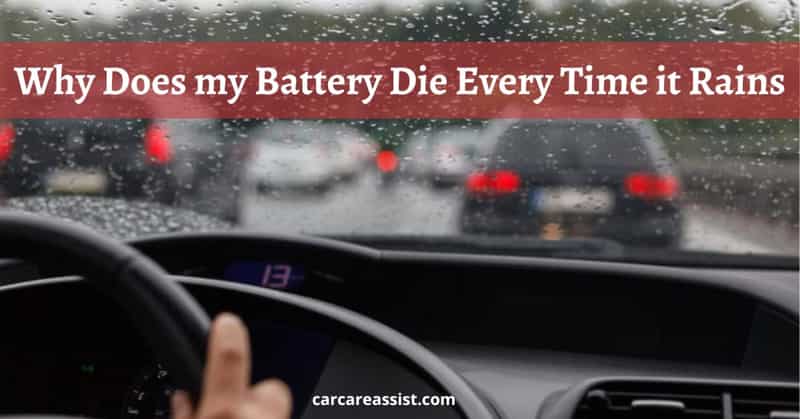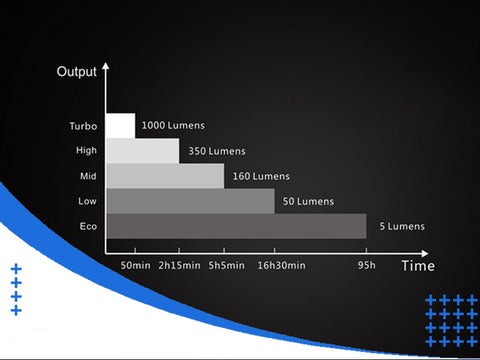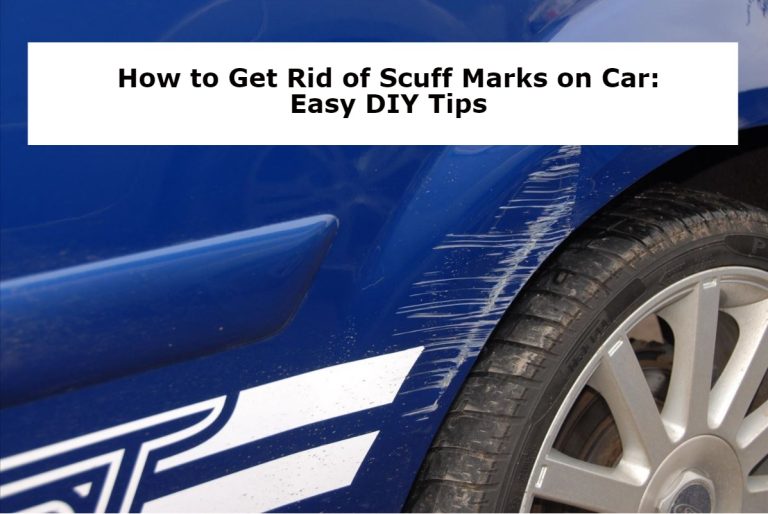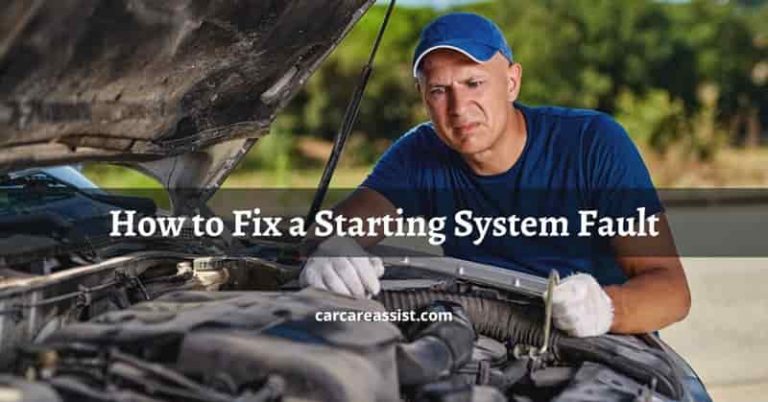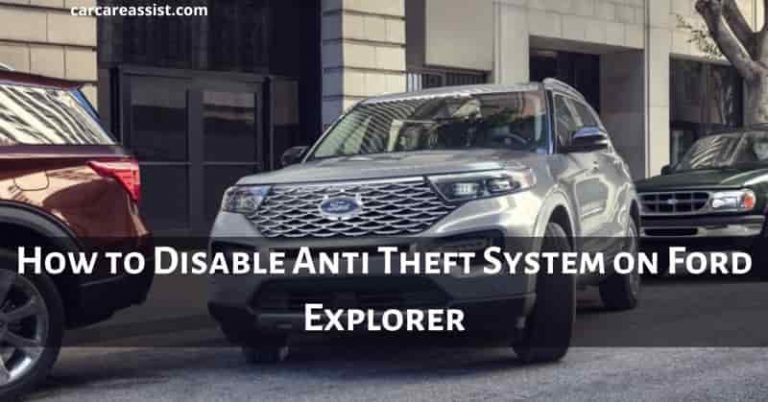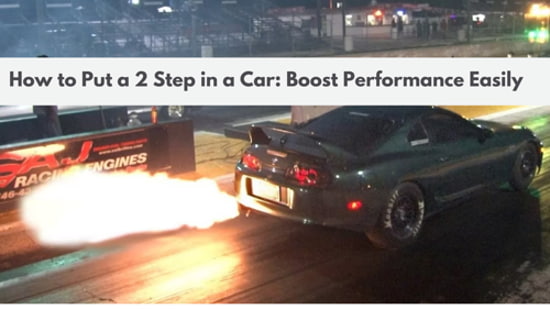Why Does my Battery Die Every Time it Rains: Fix Now!
One of the most common complaints drivers have is that their car battery dies every time it rains. While this may seem like a coincidence, there is actually a scientific reason why this happens. In this article, I will explore the reasons why batteries die in the rain and offer some tips to help you prevent it from happening.
Stay safe and dry!
Why Does my Battery Die Every Time it Rains – Possible Causes
There are two main reasons why car batteries die in the rain. The first has to do with the battery itself. Batteries are made up of positive and negative electrodes, which are separated by an electrolyte. This electrolyte is a conducting solution that allows electrons to flow between the electrodes.
In order for the battery to work, the positive and negative electrodes must be in contact with the electrolyte. However, when water gets into the battery, it can cause the electrolyte to become diluted. This dilution prevents the electrons from flowing freely between the electrodes, which reduces the battery’s power.
The second reason why batteries die in the rain has to do with the car’s electrical system. Most cars have an alternator that charges the battery while the engine is running. However, when the engine is off, the only source of power for the electrical system is the battery.
If the battery is already weak from being diluted, then it may not be able to provide enough power to keep the car’s electrical system running. This can cause the car to stall or fail to start.
Tips to Prevent your Battery From Dying in the Rain
Now that you know why batteries die in the rain, here are some tips to help you prevent it from happening:
✅ Check your battery regularly. Make sure the terminals are clean and free of corrosion.
✅ If you know it’s going to rain, try to avoid driving if possible. If you must drive, keep your engine running so the alternator can charge the battery.
✅ Invest in a battery tender or charger. This will help keep your battery fully charged when you’re not using your car.
✅ If your battery does die, don’t try to jump start it with another car. This could damage your electrical system. Instead, call a tow truck or roadside assistance service.
By following these tips, you can help prevent your battery from dying the next time it rains.
Common Causes of Car Battery Failure
There are a few other reasons why batteries fail, besides being diluted in the rain. Some of the most common causes of battery failure include:
⚠️ Corrosion: Over time, the electrodes can become corroded. This corrosion prevents electrons from flowing freely between the electrodes, which reduces the power of the battery.
⚠️ Sulfation: When batteries are not used for a long period of time, the sulfur in the electrolyte can crystalize on the electrodes. This process is called sulfation and it prevents the battery from holding a charge.
⚠️ Overcharging: If the alternator charging system is not working properly, the battery can become overcharged. This can damage the electrodes and shorten the lifespan of the battery.
⚠️ Temperature: Batteries work best in cool, dry conditions. Extreme heat or cold can reduce the power of the battery.
⚠️ Age: All batteries have a limited lifespan and will eventually need to be replaced.
If you’re having trouble with your car battery, it’s important to take it to a mechanic or auto parts store to have it checked out. They can test the battery to see if it needs to be replaced. Replacing a dead battery is much cheaper than having to tow your car or call for roadside assistance.
What to do when car battery dies while raining
If your car battery dies while it’s raining, there are a few things you can do to try and get it working again:
Check the terminals for corrosion: If the terminals are corroded, they may not be making good contact with the battery. Cleaning the terminals with a wire brush can help improve the connection.
Check the battery for sulfation: If the battery is sulfated, it may need to be replaced.
Try jump starting the car with another car: Make sure both cars are turned off and the jumper cables are properly connected before starting either car.
Call a tow truck or roadside assistance service: If you can’t get the car started, you’ll need to have it towed to a mechanic or auto parts store.
By following these tips, you can try to get your car battery working again if it dies in the rain. However, if the battery is old or damaged, it may need to be replaced. Replacing a car battery is a relatively simple and inexpensive process, so it’s important to do it before the battery dies completely.
Frequently Asked Questions
Q: How often should I check my car battery?
A: It’s a good idea to check your car battery at least once a year. This will help you identify any problems early on and prevent them from getting worse.
Q: Can I use a battery charger instead of a jumper cable?
A: Yes, you can use a battery charger to jump start your car. However, you need to be careful not to overcharge the battery.
Q: What should I do if my car battery dies while I’m driving?
A: If your car battery dies while you’re driving, try to find a safe place to pull over. Once you’re parked, turn off the engine and call a tow truck or roadside assistance service.
Q: Can I use my car battery to jump start another car?
A: Yes, you can use your car battery to jump start another car. However, you should only do this if you’re sure the other car’s battery is dead. Jump starting two cars with live batteries can damage the electrical systems of both cars.
Q: How long does a car battery last?
A: Most car batteries will last for about 5 years. However, this can vary depending on the make and model of the battery. Some batteries may last longer, while others may need to be replaced sooner.
Final Words
If your car battery dies while it’s raining, there are a few things you can do to try and get it working again. However, if the battery is old or damaged, it may need to be replaced. Replacing a car battery is a relatively simple and inexpensive process, so it’s important to do it before the battery dies completely.

